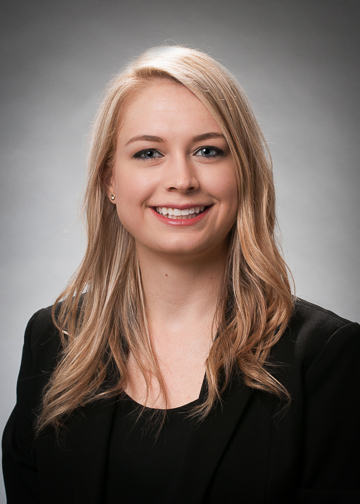Vascular Discovery 2018: Prologue
This year, the previously known ATVB conference will debut its new name as the Vascular Discovery: From Genes to Medicine 2018 Scientific Sessions. The collaboration of three well-known AHA Scientific Councils, (the Council on Arteriosclerosis, Thrombosis and Vascular Biology, the Council on Peripheral Vascular Disease and the Council on Genomic and Precision Medicine) will provide a unique opportunity for attendees to make the most out of their scientific experience, network with connoisseurs in the field and establish new collaborations.
As a scientist in the early stages of my career, my conference agenda will be focused on the followings:
Early Career Training Sessions – Hallmark of the Event
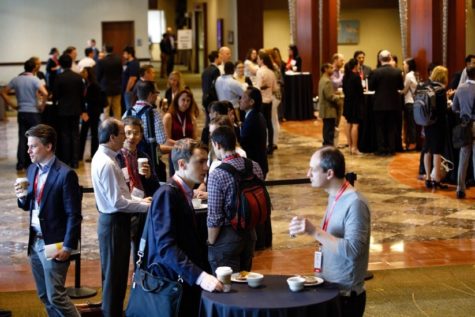
Based on my experience from the last few years, I will look forward to attending the Early Career Training sessions. I was always captivated by the fruitfulness of these short sessions and how it helped me to shape my moving-forward career. This year, the first and second day of the conference will start with Early Career Training sessions. On Thursday, the Early Career Committee will share insights about succeeding at every stage of your career featuring talks on starting your own lab, work-life balance and transitions to the industry. The session on Friday morning is organized in cooperation with the ATVB Early Career Committee and will be focused on skills needed for difficult situations.
In my opinion, the points that will be discussed during talks in these sessions and their following Q & As will provide ample insights about how to modify your move toward future steps of your career.
Network, Network, Network!
The smaller setting of Vascular Discovery ‘18, compared to AHA Scientific Sessions or similar events, allows you to see more and to be seen more. You will have more exposure to your peers and experts in your field of interest during different segments of the event. Try to stay away, as much as possible, from peers and people from your own institution and find new connections.
Before heading to the event make sure that you ask yourself “why am I going?” Are you looking for a possible position? Is it a recommendation that you may want? Are you interested in starting collaborations? Come up with a goal and make sure you accomplish it instead of aimlessly wandering around.
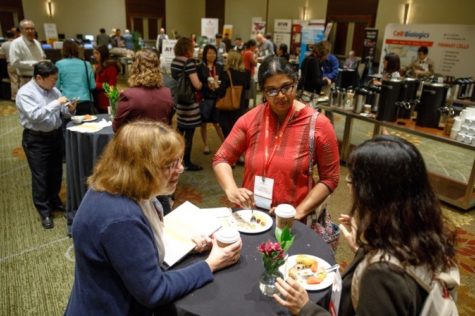
Now that you have a networking goal, make sure to have an effective introduction when meeting someone new. Make eye contact, smile, and state your name and institution clearly then, listen (believe it or not, it is easy to miss these points when you are nervous).
Also, make sure you are not forgetting business cards and lean on “I just gave away my last one!” Moreover, have in mind that you will not remember the important details of every conversation, so be prepared to take notes. The whole purpose of networking is to connect with people in the near future and taking notes will make it easier.
Personally, I believe that networking is one of the priorities in attending any scientific sessions and being proactive and prepared for it will help you to make sure that you get the most out of it.
Poster Sessions – Land of Opportunities
If you are attending Vascular Discovery ‘18, you are probably aware that your research falls within the overall themes of the conference. Therefore, you find much more topics that you will be interested in, compared to more comprehensive meetings.
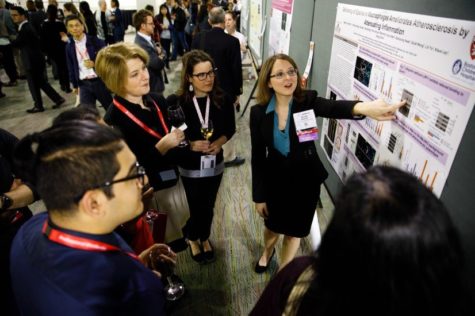
This point will specifically come to your realization during the poster sessions. Posters are one of the crucial currencies for communications and connections. Given the fact that how powerful posters are in making connections and receiving feedback, whether you are the presenter or the presentee, you should make sure to plan your attendance to the “land of opportunities.” Based on personal experience, visiting the posters from well-known research groups in your field of interest can help fostering strong working relationships. It would be helpful if you familiarize yourself with the names and even pictures of people who you may be interested to talk to, so you can approach them during the poster sessions.
In the case of you being the presenter, it is recommended that you prepare different versions of talking points, a short elevator pitch for less curious and a longer version for one’s with deeper interests. Finally, be open, enthusiastic and passionate during your presentations and do not be shy to ask people earlier in the day to stop by your poster.
Final Words
Vascular Discovery ‘18 will be filled with sessions discussing cutting-edge research from world-renowned scientists. Therefore, it would be worth it if you spend time on the final program and pick out the sessions/talks which you would be interested in. In case you will not be able to attend this meeting or some of the sessions, make sure to follow my special coverage of the event on my twitter (@MoradiShayan).
At the end of the day, also note that a full day of scientific quests may get overwhelming, so plan to have fun after the conference and enjoy the beauties of San Francisco.
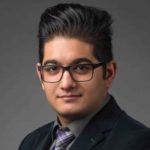
Shayan is a caffeine-dependent Ph.D. Candidate at the Saha Cardiovascular Research Center, University of Kentucky. His research area is focused on vascular biology and lipid metabolism. He tweets @MoradiShayan, blogs at shayanmoradi.com and he is the Winner of World’s Best Husband Award (Category: nagging).
